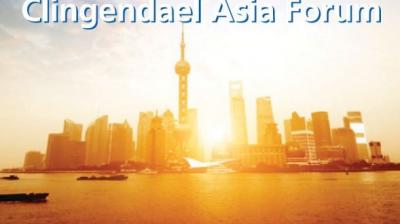Foreign media on China: beyond positive and negative reporting
In discussions about foreign media reporting on China, the question of whether journalists present too negative an image of China increasingly arises. Similar questions also appear in a broader context: is the bias in Europe regarding China too negative because we are arrogant and narrow-minded?
These are questions not only asked by journalists themselves, but also at scholarly meetings and by officials and businesspeople dealing with China. It is quite telling for the growing Chinese influence on the framing of the debate in Europe about China that these questions pop up at all. Media reporting in Europe, as well as reporting by some of the more critical and independent journalists in China itself, tends to focus on things that do not function properly rather than on things that do. If the media want to fulfil their role as a watchdog, they will by definition be quite ‘negative’ in tone.
The media also tend to be especially watchful when it comes to institutions or countries with great power, of which China definitely is one. Reporting on the United States can also be quite critical and negative, but the United States is not in the habit of complaining about it. China, on the other hand, is not used to open scrutiny by internal or external watchdogs; it does not appreciate such scrutiny from abroad; and China does complain.
These complaints should not tempt us to discuss European reporting on China on Chinese terms. It is high time for Europeans to stop using the terms ‘positive’ and ‘negative’ when judging the value of information on China. These terms may make a lot of sense in a Chinese political setting, but they do not in a European context.
The Role of the Media in China
Important differences exist between the functioning of the media in China and in Europe. In China, the media’s role is first and foremost to educate and instruct the people morally. Journalists are expected to promote certain ‘good’ values and habits while discouraging ‘bad’ ones.
This is not the case in Europe. Here, the main role of the media is to provide a critical counterbalance to the words and actions of any person or group in society that exercises power. The media do not so much educate the public as provide transparency and information, so that the public can make their own informed decisions.
In China, the media receive frequent instructions from propaganda departments at different levels on how to report on specific news. Recently, China commemorated the fifth anniversary of the heavy earthquakes in 2008. According to information leaked on the internet, the Central Propaganda Department instructed the media to: ‘Please ensure that you strictly comply with the related reporting requests distributed earlier. Maintain positive coverage. Do not produce negative material’. These kinds of instructions are part and parcel of a Chinese journalist’s life. He cannot be fully independent; he has to heed the instructions of the various propaganda departments as well. More sophisticated news consumers in China therefore always suspect ‘ulterior motives’ behind the information provided; why do the authorities want the media to present certain information at a certain moment and in a certain vein?
Of course, sophisticated Western news consumers ask similar questions: they wonder about the type and amount of spin behind certain stories. The difference, though, is that in European countries there is no central government institution that is directly involved in controlling and steering all media in a country in a desired direction. Rather, we see different and conflicting societal forces trying to influence the media.
This suspicion that there are ulterior motives at play has permeated more general attitudes towards news and information in Chinese society. Nobody expects it to be value-free. When I was working in China as a foreign correspondent from 2001 until 2008, I was often treated with a certain suspicion. Was there really no institution instructing me on the tone of my reporting? Or was I simply not honest enough to confess frankly what image my newspaper required me to present of China? The truth, however, is that I never came across any grand scheme to make me present China in a certain light. My editor at the newspaper stressed that I should speak for nobody but myself in my reporting, that I should not take into consideration how my reporting would reflect on the position of my country in relationship to China, on public opinion, on business interests, or even on my own newspaper.
However, it is true that China’s rise has inspired fear and negative feelings towards China. These may consciously or subconsciously have an influence on our selection of news and the way it is presented in Europe. This is something that we should address. How real is our fear of China, what do we fear, and why? The media do have an important role to play in helping to answer these questions, a role that they can only properly play with as many foreign correspondents on the ground as possible. If not, there is a real danger of shallow reporting that feeds into the irrational elements of these fears.
Reporting on the 2008 Tibetan Riots
How did we in Europe become infected by a much more Chinese way of judging the value of information? To understand how the terms ‘positive’ and ‘negative’ came to play a more prominent role in our own discourse on China, we should look back to 2008. Just a few months before the start of the Olympic Games in Beijing, serious riots broke out in Tibet. Afterwards, the foreign media were heavily criticized in the Chinese press for their supposedly biased reporting on those riots. According to the Chinese media, foreign reporters were too ‘negative’ towards the Chinese, and too ‘positive’ towards the Tibetans.
This constituted a turning point. Whereas before 2008 the Chinese government saw foreign correspondents as crucial in creating more understanding of China abroad, after the Tibetan riots the Chinese government changed track. Since then, the government has felt that the role of promoting China abroad was better left to the Chinese media and journalists, since the foreign press had disappointed China and would undoubtedly do so again. It was time for China’s voice to be heard abroad directly, through Chinese media organizations.
I remember how I started to feel less welcome, and also how this criticism influenced foreign journalists’ discussions. Had we indeed been too negative? That question, once asked, did not go away again because we started to formulate answers. It changed the nature of our discussions. We as journalists had started to defend ourselves against Chinese criticism on Chinese terms, simply because we were reacting to what China was saying rather than sticking to our own agenda. It also led to a stronger Chinese voice in the debate: China wanted to make it clear that we were incorrect in our perceived negativity, and that if we wanted to continue to play a role in the debate, we had better change our tone.
Since then, questions about ‘good’ or ‘bad’ reporting – as judged from a moral perspective – also seeped into our broader discourse about China, as can be seen from the questions that have evolved around biased reporting – questions that we are spending a great deal of time discussing. As foreign reporters, we are wasting our time trying to answer those questions. We should make full use of our freedom to formulate our own questions about China, while steering clear of the kind of moral guidance with which China provides its own reporters and scientists. I think many of my Chinese colleagues would be relieved if they could do the same.
Garrie van Pinxteren is Senior Visiting Fellow at Clingendael Research.
[[{"type":"media","view_mode":"media_large","fid":"2607","link_text":null,"attributes":{"height":46,"width":251,"class":"media-image media-element file-media-large"}}]]
Clingendael Asia Forum is an online platform for commentaries on international relations in, or relating to, Asia.
It is published by the Clingendael Institute in The Hague, the Netherlands.
For information on how to contribute an article, please visit http://www.clingendael.nl/page/clingendael-asia-forum.
To subscribe to, or unsubscribe from, the email distribution list, please contact asia@clingendael.nl.





